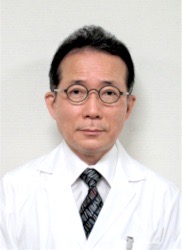Greeting from the Hospital President

Our hospital was founded in Nanpeidai, Shibuya, Tokyo under the name “Senin Hoken Shibuya Hospital” as an occupational hospital for sailors. In 1951, we relocated to Takanawa, Minato (current location) as Senin Hoken Tokyo Central Hospital. In 2009, our name was changed to Senpo Tokyo Takanawa Hospital. In 2014, we joined the Japan Community Health care Organization (JCHO), and for nine years we have been operating as JCHO Tokyo Takanawa Hospital.
We are located close to Shinagawa Station in a very convenient location. As a medium-sized hospital, we are able to provide flexible and high-quality medical care. We have contributed to regional medical care as a designated emergency hospital (secondary emergency medical care facility), and in order to provide comprehensive regional medical care that encompasses “acute care, rehabilitation, and long-term care,” we established the “Regional Comprehensive Care Ward” in October 2014, and the “Medical Cooperation & Patient Support Center” in 2015. After acute care improved symptoms in patients with cancer, heart attacks, and strokes and achieved in their stable condition, the Comprehensive Care Ward, provides supports to improve their physical condition so that they can live safely and comfortably at home and in the community after discharge. The Medical Cooperation & Patient Support Center accepts patients and provides help for resolving problems during treatment. “Takanawa Visiting Nurse Station,” a hospital-affiliated center, provides suitable nursing care according to the needs of the patient and the patient’s family in cooperation with their family doctor so that the patient can recuperate in comfort after discharge.
Following the start of the COVID-19 pandemic in January 2020, we have had a system in place since March 2020 for accepting suspected COVID-19 patients, performing PCR tests, and handling outpatients with a fever. Currently, considering the needs of Tokyo and the infection trend, we have secured hospital beds (24 beds) specifically for COVID-19 patients, and all staff are working in together in order to maintain regular medical activities.
The field of medicine and medical care are constantly evolving as diagnostic and treatment methods become more diverse and complex, the nature of diseases changes due to aging and Westernization, the relationship between patients and doctors changes, and treatments are provided across various fields. Starting in April 2024, the way that medical care is provided may change significantly due to changes in the way doctors work. Our hospital is preparing to address these changes in the medical care environment as we aim to become a hospital” that provides safe and supportive medical care” that meets community needs. We appreciate your support in the future.
April 2022
Japan Community Health care Organization (JCHO) Tokyo Takanawa Hospital
Junji Yamamoto
[Background]
June 1981 Resident, First Department of Surgery, The University of Tokyo Hospital
September 1982 Surgeon, Ibaraki Prefectural Central Hospital
October 1985 Surgeon, First Department of Surgery, The University of Tokyo Hospital
June 1989 Surgeon and Chief Surgeon, National Cancer Center Hospital
April 2001 Chief Surgeon, Gastrointestinal Surgery, The Cancer Institute Hospital of JFCR
April 2008 Professor, Surgical Course, National Defense Medical College
July 2018 Vice President, Medical corporation Seikeikai New Tokyo Hospital
February 2020 Vice President, Regional Cancer Center of Ibaraki Prefectural Central Hospital
April 2022 President, Japan Community Health care Organization (JCHO) Tokyo Takanawa Hospital
[Qualifications, etc.]
Surgical specialist, Japan Surgical Society
Medical Advisor, Japan Surgical Society
Surgical specialist, The Japanese Society of Gastroenterological Surgery
Medical Advisor, The Japanese Society of Gastroenterological Surgery
Certified Doctor of Gastroenterological Cancer Surgery
Expert Medical Advisor, Japanese Society of Hepato-Biliary-Pancreatic Surgery
Principle and basic policies
https://takanawa.jcho.go.jp/patient/tokyotakanawahospital/en_principle/